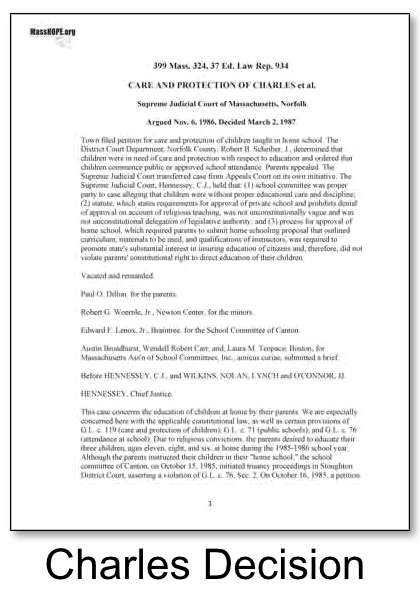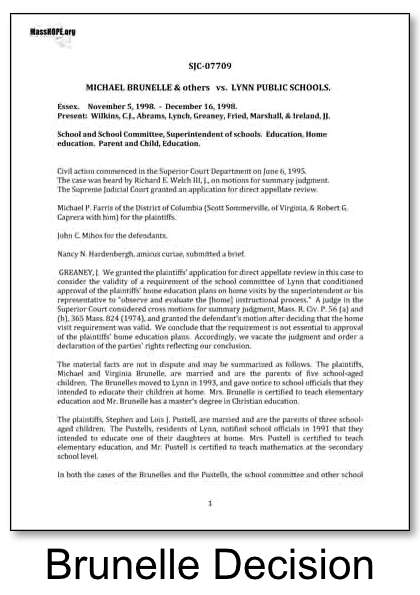
Families considering homeschooling in Massachusetts may feel overwhelmed by the enormity of the task. MassHOPE is here to encourage and impart knowledge and resources to help equip you to know your options and make an informed decision.
Let’s get started!
Invisible
Listen to MassHOPE Convention Session "Seven Steps to a Great Start"
Know the Law
We do not provide legal advice but firmly recommend following state law.
Massachusetts compulsory attendance law provides that children must attend a recognized and/or approved school or be educated in some other way that is approved in advance by the local school committee or superintendent.
We recommend that you read two important cases guiding the homeschool environment in Massachusetts. These are Care and Protection of Charles, 399 Mass. 324 (1987) and Brunelle v. Lynn Public Schools, 428 Mass. 512 (1998).
From the Charles case:
“School committees shall approve a private school when satisfied that the instruction in all the studies required by law equal in thoroughness and efficiency, that in the public school in the same town.”
Approval must be obtained in advance but in a case where the parents commence homeschooling their children at home and the school committee refuses to approve the parents’ home school proposal, the burden of proof is on the school committee to show that “the instruction outlined in the proposal fails to equal in thoroughness and efficiency, and in the progress made therein, that in the public schools in the same town.”
Submit an Annual Notice of Intent
According to state law and court opinions, home visits may not be required as a condition of approval. There are four areas a superintendent or school committee may consider when reviewing a notice of intent:
- The proposed curriculum and number of hours of instruction
- The competency of the parents (parents do not need college or advanced degrees)
- Textbooks, workbooks, and other instructional aids to be used
- The method of assessment used (to ensure educational progress and attainment of minimum standards); the superintendent or school committee can require standardized testing or may substitute, with the approval of the parents, another form of assessment
Teach the Required Subjects
Keep Good Records
Test or Evaluate Your Child as Required
A superintendent or school committee may require periodic standardized tests or “other means of evaluating the progress of the children [that] may be substituted for the formal testing process, such as periodic progress reports or dated work samples.” Testing or evaluation must be mutually agreed upon by the parents and the superintendent or school committee.
According to the Massachusetts Supreme Court opinion issued in the case Care and Protection of Charles, the standard of review to determine adequate progress is if the education is equal in “thoroughness, efficiency and progress made therein” to that of the schools in the district.
Join HSLDA
Frequently Asked Questions
Coming soon.
1 Cor. 16:13









